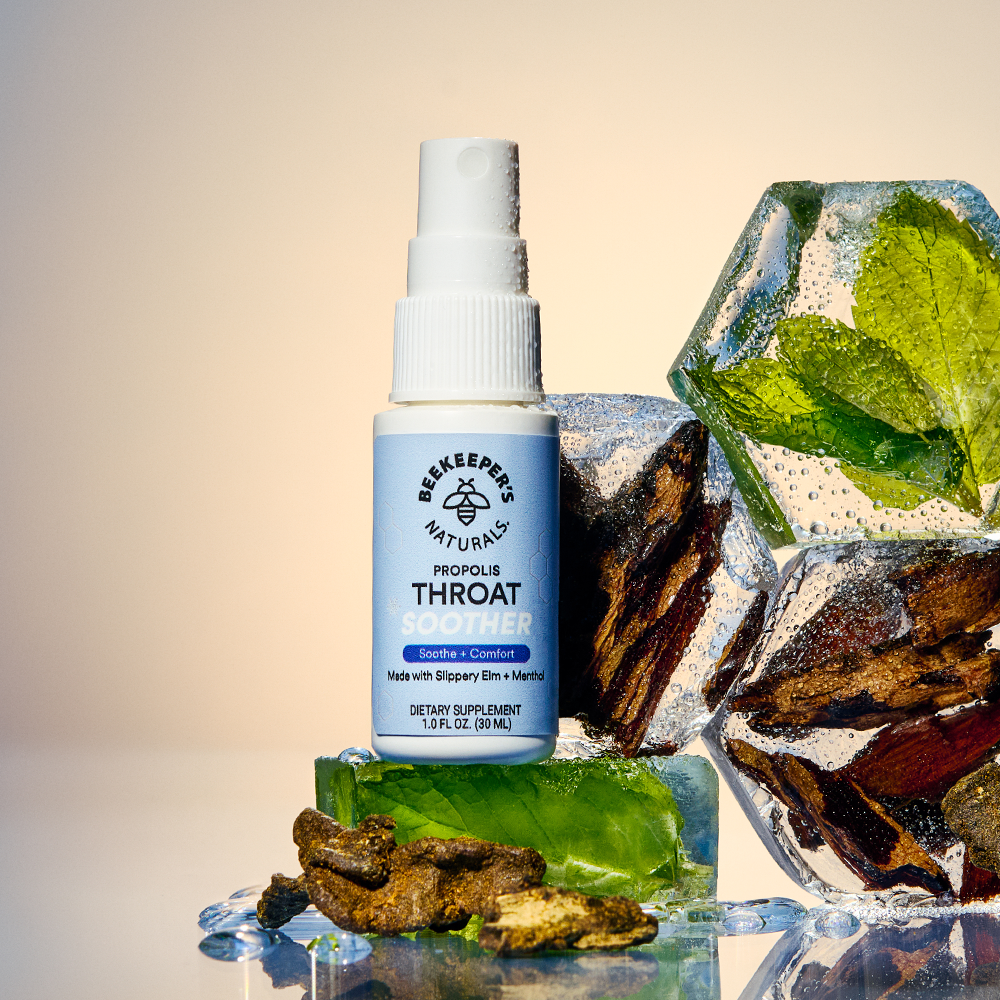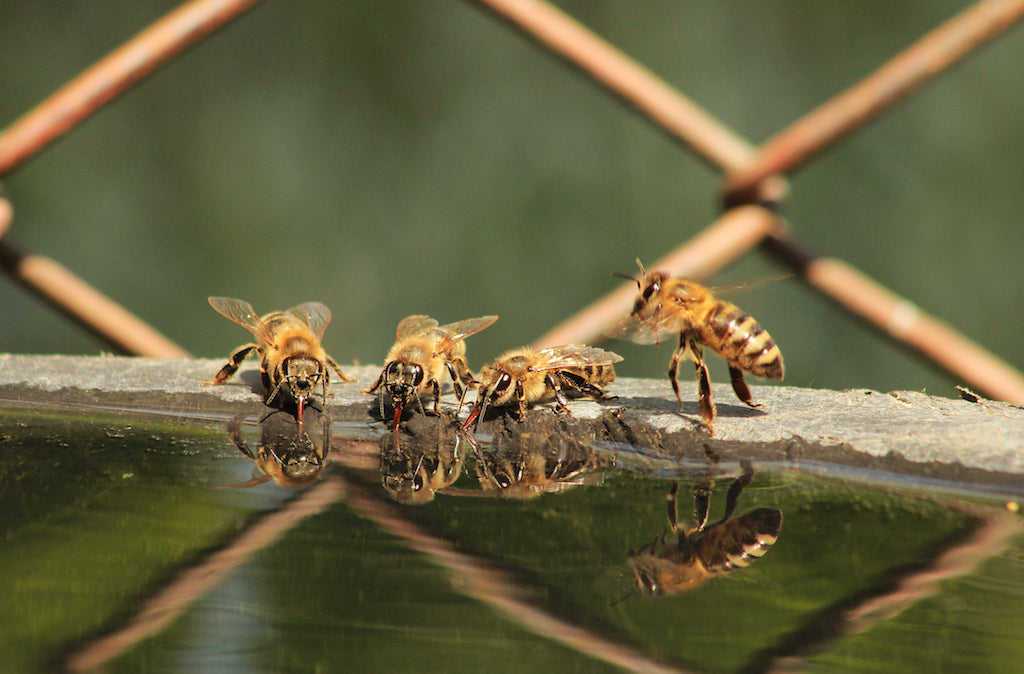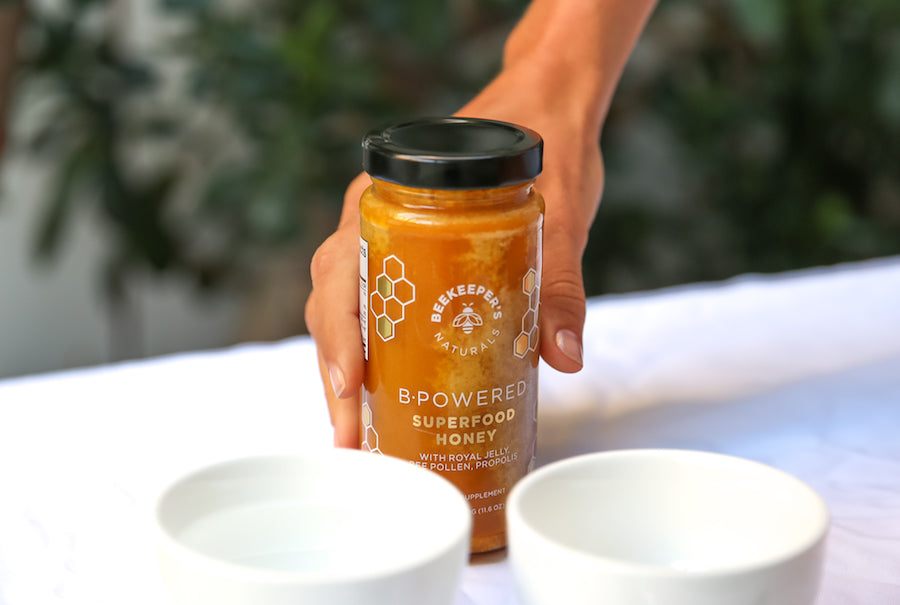When Steph Munro was strolling through her local garden center to buy plants, she had no idea that her life path was about to take a major turn. As it turned out, her local bee society was there, talking to gardening enthusiasts about beekeeping and which plants best attract bees. Currently doing some landscaping herself, she decided to listen in. But it was when she laid her eyes on the observation hive they were displaying that she fell utterly in love!
A few weeks later, Steph happened upon an ad promoting a beekeeping certificate—and she thought why not! She knew nothing about beekeeping, but felt strongly drawn to it. As she worked to complete her Certificate of Apiculture, her family informed her that her great-grandfather was actually a beekeeper—honeycomb practically lines her veins! Based in Southland, New Zealand, Steph Munro still considers herself a beekeeping newBEE, just having had her first official season this summer with her company, Munro Honey Co. But even though she's only been keeping for 2 years, she has loads to share about her journey.
We caught up with Steph to chat about her fears, the excitement of her first honey harvest, and how working with bees has changed her life for the better...
What was your greatest fear about starting to keep bees?
My biggest fear…I had no idea what I was doing but I just loved bees! I sold my car and anything else I could and invested it all into my first season! It was rather daunting. I kept thinking that these bees could just fly away at any moment over the fence; you can’t quite keep them in, like a cow in a paddock.
I also knew from early on I wanted to operate a little differently and put a major focus on sustainability. I was inspired by a kiwi beekeeper at a conference I went to last year. He approached his operation in a really forward-thinking, sustainable way. He dreamed up big ideas, engineered equipment, and wasn't afraid to think differently. But really the biggest point I took away was that his bees' health came first, before revenue. Of course, he ran a successful and profitable business, but his approach was different to the mainstream and it inspired me to not be afraid to think differently. So, while a lot of beekeepers are now moving to plastic frames for convenience and efficiency, I decided I wanted to stick with wooden frames—I don't use plastic in my hives. I would stay up late each night after work building my wooden and wax foundation frames, sometimes wondering why, but I learned to trust my instincts and became comfortable with figuring things out along the way.
Tell us about your most memorable experience with your bees in your first year.
Extracting my first box of honey with my family. It was a really proud moment. They were really supportive of my passion from the very beginning and it felt really rewarding—extracting honey from my first hive in our family kitchen. They were just as excited as I was to see it flow and fill that first jar! We ate so much we lay on the floor in sugar comas after that, but it was worth it.We absolutely love your beautiful bee photos of the bees. What inspires you to snap a picture?
Thank you! I love capturing what the naked eye cannot—from the speed of their wings to the fuzz on their bums! It provides a different perspective and hopefully makes people understand why I love bees as much as I do.
When I finished school I did a fine arts degree, so I guess it has branched from there. I also enjoy just stopping—observing my bees and photographing them, not always hustling and bustling, ticking jobs off my list. It’s my peaceful quiet time.
Tell us three lessons that you’ve learned from the bees.
1. Work hard, but make time to stop and smell the flowers or sit in the sunshine.
2. Never stop learning. I am always amazed at how much there is to learn about these little creatures, and that makes it all the more fun! I read, watch, and absorb as much information as I can. Then I open a hive and the rule book goes completely out the window!
3. Many hands make light work! For such tiny creatures, they sure do get a lot done.
How has working closely with bees changed your perception of nature or the world around us?
We must work in a symbiotic relationship with nature. As humans, we can’t just take resources and never return.
I think that since I have started beekeeping, I am more appreciative of just how magical Mother Nature is. Sometimes, as a beekeeper, you make small adjustments and manipulate your hives, but towards the end of my season I learned to just respect what my bees were doing. I began to trust that they know what they are doing, so I just observed and waited to see what would happen. Nearly always they would have it sorted themselves.
It has also made me realize how wasteful we are as humans. I became more and more aware that as humans, as businesses, we should be responsible for our products from start to end…the end being not just in the hands of our consumer, but providing them ways to be kinder to our planet by recycling or reusing.
That's why I use glass jars for my honey, as opposed to plastic containers. This has been a real hit! My customers love that they can recycle their jar and some have brought it back to me and I fill their jar straight back up from my 30L stored buckets.
What is one piece of advice you would give your 20 year old self?
Don’t sweat the small stuff. I would tell her to take a deep breath and ask, ‘Will this matter in a week's time?’. Often the answer is 'no'. We get caught up in the silliest things. I think that’s why I love bees so much. When working with bees, you can’t help but be very present.
Want to learn more about Steph and her company Munro Honey Co? Continue following her beekeeping journey on Instagram @munrohoneyco.









